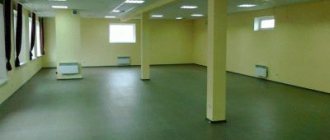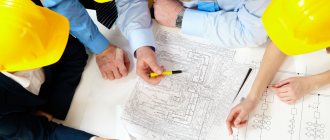One of the annual New Year's gifts to our legislative authorities on the eve of 2021 was the introduction of amendments to housing legislation regarding changes in the procedure for providing utility services to owners of non-residential premises. It would seem that the changes are positive and long overdue...
In accordance with paragraph 7 of the Government of the Russian Federation of May 6, 2011 N 354 “On the provision of utility services to owners and users of premises in apartment buildings and residential buildings” (hereinafter referred to as Rules 354) supply of cold water, hot water, electrical energy, thermal energy and gas into non-residential premises in an apartment building, as well as wastewater disposal are carried out on the basis of a resource supply agreement concluded in writing with the resource supplying organization
(hereinafter referred to as RSO), which must comply with the provisions of the legislation of the Russian Federation on water supply, sanitation, electricity supply, heat supply, gas supply.
Privatization rules
Reference. Non-residential premises can be privatized if they are in state or municipal ownership in accordance with Art. 217 Civil Code of the Russian Federation.
As a rule, the tenant himself is usually interested in this.
In this case, there is no need to equate this with the privatization of ordinary apartments, since residential property is transformed into private property according to slightly different rules of Federal Law No. 178. Federal Law No. 159 provides for the tenant's pre-emptive right to privatize a non-residential property, but for this it is necessary to be an entrepreneur for at least 3 years.
However, it is worth remembering that such property is always alienated on a paid basis, so you should not count on acquiring the premises for free. Its value will be equal to the market price of the property, and in the case of alienation of the land plot - to the cadastral value. In order to do everything correctly, you need to contact the city administration through the MFC and provide the following documents:
- statement;
- lease contract;
- extracts from the cadastre;
- applicant's passport.
Only after a positive decision has been made by the administration, the tenant pays the cost of privatization. Problems may arise if the person interested in this rents part of the non-residential premises. In this case , it will be very difficult to privatize the premises, but it is only possible if it can really be isolated .
A person who has never been a tenant of a non-residential property can only purchase it at auction.
IMPORTANT. In an apartment building, it is impossible to privatize the common property of the owners (entrances, balconies, attics, basements, landings), as well as the local area.
AUTHOR'S ADVICE
It is not recommended for HOAs to issue acts on utility services, so that questions regarding the formation of revenue from sales do not arise.
Heating certificates should be issued only during the heating season, even if fees for this service are charged throughout the entire calendar year.
Maintenance of common property
It is correct to issue certificates for this service at the end of the year, although payment is made monthly. The fact is that work and services using funds at this tariff are performed to varying degrees throughout the year and their full volume can only be assessed upon its completion.
GOOD TO KNOW
For management companies, it is advisable to indicate in the accounting policy the concept of “revenue as ready,” which will allow the monthly maintenance of common property, according to the accrued fee, to be considered provided in full.
For HOAs, it is possible to issue acts monthly for an incomplete amount, since funds from this tariff are partially used for the salaries of HOA employees (accountant, lawyer, janitor, mechanic, cleaner, etc.), remuneration to the chairman and members of the HOA board, which are paid monthly. For other works and services, a report should also be drawn up at the end of the year.
Repair of common property
In addition to the maintenance of common property, owners also pay for routine repairs. These funds should be classified as earmarked funds (clause 14, clause 1, article 251 of the Tax Code of the Russian Federation), there is no need to issue monthly acts for them, especially since there is no need to allocate the amount for the entire act for the work (services) provided to a specific owner according to his share of ownership in common property. The act can be drawn up upon completion of work (services) and delivery in full.
GOOD TO KNOW
In order to recognize their expenses under this tariff in actual volume, the owners can receive an accounting certificate in which their share of the expense can be calculated. But, as a rule, he does it on his own.
Issuing acts for major repairs is considered incorrect for both the HOA and the management company, since for both of them these funds are of a targeted nature and, accordingly, do not represent revenue. These funds are spent only for certain purposes and must be reported to the Housing Inspectorate.
Payment document = primary accounting document?
The payment document issued to the owners is not equivalent to the primary accounting document, since it does not contain all the required details in accordance with Part 2 of Art. 9 of the Federal Law of December 6, 2011 No. 402-FZ “On Accounting”. For example, the payment document does not contain the date of preparation and the persons responsible for its preparation, and there are no signatures in the payment documents, which is quite logical (every “payment” will not be signed by an accountant or the chairman, especially if the HOA includes more than one house! ).
GOOD TO KNOW
If the owner requires a primary payment document, it can be an accounting certificate containing all the details necessary for this, and the payment document can simply be attached to this certificate.
Certificate of provision of services is optional
Owners of non-residential premises need primary documents with which they can confirm expenses. As we have already found out, a payment document is not a primary document, and issuing acts is not necessary for house managers (and in some cases should not be carried out, for example, for major repairs). But how can owners act in this case?
Firstly , you should have a copy of the agreement with the management company or HOA for the management of an apartment building. Secondly , all payment documents issued monthly with attached documents confirming the fact of payment (payment orders in the case of non-cash form or receipts/checks if payment was made in cash). And thirdly , prepared accounting statements for each payment document. These documents will be sufficient to recognize expenses to the owner.
If the owner is in debt, a controversial question arises: is an act needed to confirm the debt? Opinions differ, but based on arbitration practice, we can conclude that here the act is not binding, since to confirm the debt of the owner of a management company or HOA it is enough to prove the fact of carrying out activities to manage the house and the calculation of the owner’s debt, which is based on the established, according to all rules, fee amount and room area indicator.
Owners of non-residential premises must independently enter into agreements with resource-supplying organizations, since HOAs are not providers of utility services for owners of non-residential premises and most owners of non-residential premises use them for commercial purposes, which, according to the Rules, does not correspond to the definition of a consumer of utility services.
But it is often easier for resource supply organizations to work through a management company or homeowners association, since it is more convenient to have one subscriber rather than a number of owners. In this case, to confirm the debt, it is necessary to provide data on the volume of services consumed according to individual metering devices and a regulatory act on the established tariff.
GOOD TO KNOW
If it is not technically possible to provide services to a non-residential premises separately from the rest of the building, the owner of the non-residential premises enters into an agreement with the HOA.
The absence of payment documents does not exempt you from paying the principal debt, only from paying penalties. The absence of contractual relations, acts, invoices also does not exempt the owner from payment (determination of the Supreme Arbitration Court of the Russian Federation dated August 20, 2013 No. VAS-11308/13, resolution of the FAS VSO dated February 20, 2014 No. A33-1792/2013, FAS ZSO dated February 25, 2013 No. A45-15805/2012).
The entire fee is an expense
The owner can take into account as expenses absolutely the entire payment that he makes to the management company or HOA (utilities, maintenance and repair of common property, major repairs). As mentioned above, utilities and services for the maintenance and repair of common property are considered material according to Art. 254 Tax Code of the Russian Federation. The owner of non-residential premises, as a rule, uses it to carry out commercial activities. Payment of payment documents issued to him is his responsibility, so why can’t he take into account as part of the expenses of his organization the expense that is caused in connection with the ownership of this premises, which he uses for the activities of his organization, in order to carry out financial and economic activities.
GOOD TO KNOW
Amounts for payment documents of management companies and homeowners associations are, due to their specific nature, non-refundable, since by paying them, the owner receives a certain level of improvement of his property in the form of residential or non-residential premises. Only the amount paid for major repairs can be refunded if, for example, the house is declared unsafe or demolished (Part 2 of Article 174 of the Housing Code of the Russian Federation).
Owner's powers
According to Art. 217 of the Civil Code of the Russian Federation, the owner has the following rights:
- possession;
- order;
- use.
In practice, this means that the owner can take any actions in relation to his property. If we consider this issue in more detail, we can say that such an owner has the right to:
- alienate non-residential property (sale, exchange, rent, pledge);
- bequeath an object to certain subjects;
- carry out current and major repairs of the premises;
- reconstruct the property in agreement with government agencies;
- transform the property into a residential apartment/apartment;
- use property to make a profit and engage in business;
- conclude a real estate insurance contract;
- protect property by all legal means.
The rights of the owner are ideally unlimited, but in an apartment building it is always necessary to take into account the interests of neighbors. This means that it will be problematic for a person to freely reconstruct and increase the area of the premises.
REFERENCE. If the property ambitions of the subject will affect the common property of the owners of the apartment complex, then it is necessary to hold a general meeting of residents and obtain their consent to this (Article 40 of the Housing Code of the Russian Federation).
Watch a video about the rights of owners of non-residential premises in apartment buildings:
What are the responsibilities?
In addition to legal opportunities, the subject has a set of obligations that are an integral part of the right of ownership, and especially in the MKD according to Article 210 of the Civil Code of the Russian Federation.
Attention. The law equates the owner of non-residential premises to any other tenants.
His main responsibilities are the following:
- respect the legitimate interests of neighbors (do not make loud noise, comply with the law “On Silence”);
- use the object only for lawful purposes;
- comply with sanitary, epidemiological and fire safety standards;
- maintain the facility in proper condition;
- make payments for utilities, including contributions for major repairs, as well as repairs/maintenance of the house (Articles 153, 158 of the Housing Code of the Russian Federation);
- coordinate your actions with the owners of residential premises and government agencies in the event of a major reconstruction of the premises;
- pay property taxes;
- enter into an agreement with a management company or HOA, resource supply organizations.
These are the general responsibilities of any owner; therefore, in this case, the subject does not receive additional encumbrances due to its status. All of the above actions are derived from Art. 30 Housing Code of the Russian Federation .
Reference. It is worth noting that the legislator did not single out such owners as a special category, in fact equating them with other residents of apartment buildings.









